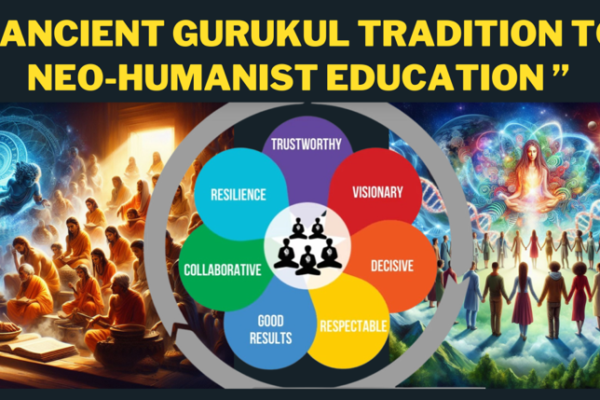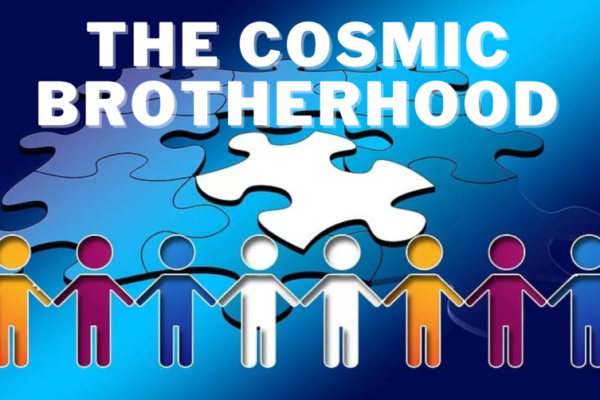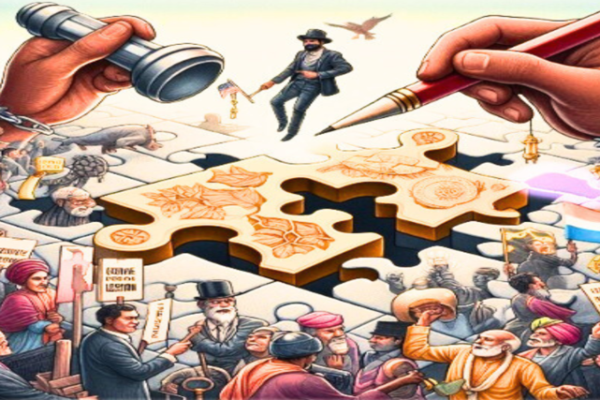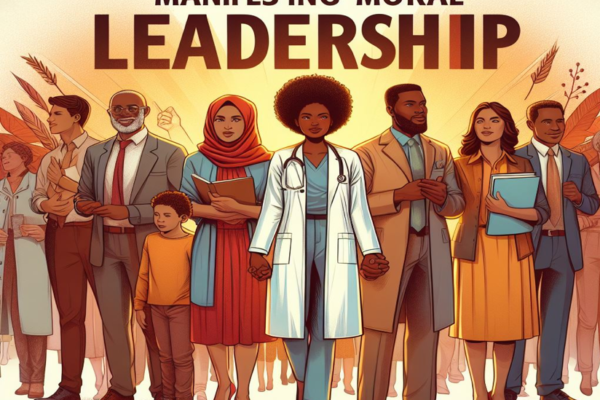G Surender Reddy
“The economists have only interpreted Property in various ways. The point in essence is proper Utilisation. That is, the Progressive Utilisation of all kinds of resources – material, intellectual, spiritual for the welfare of human society.”
The Agricultural age, commencing around Ten thousand years ago, afforded the support, to leisured classes, for the birth of various civilisations. The industrial age began with the invention of the steam engine less than three hundred years ago. Intellectuality has grown in leaps and bounds, bringing us to the threshold of Artificial Intelligence’ – exceeding the processing power of a human brain and, shortly, even the combined processing power of all humanity.
Propreitarianism and Citizenship:
Today, the Propreitarian economies – private, state and their hybrid sectors, and politics of Borders and Citizenship in governance, are challenged as never before. The necessity to cultivate a Neohumanist approach to economy and politics is increasingly felt. Economists have only interpreted Property in various ways. The point, however, is Utilisation. That is the Progressive Utilisation of all kinds of resources – material, intellectual, and spiritual, for the welfare of human society. Further, the pandemic, climate change, nuclear war and technology disruption, respect no Borders, warranting a world governance structure.
Cosmic Inheritance:
Prout asserts that all living beings, animate and inanimate, are the progeny of a singular Progenitor. Hence, all have the all-important Right to utilise and share, but not hoard or abuse, the universe’s resources as a cosmic inheritance. Therefore, the concept and practice of privileging user-ship over ownership of finite physical resources is the fundamental principle for maximum and progressive Utilisation, and rational distribution, of all available resources, for the welfare of all living beings. Thus, the misuse and disuse of available resources is anti-social behaviour.
The underlying principle is recognising that the hoarding or misusing of finite physical resources would deprive or diminish opportunities for others. Thus, Prout legislates for the social intervention of a ceiling on the accumulation of physical wealth. The principle applies only to the accumulation of available physical wealth, whereas, in the realms of infinite metaphysical (Intellectual/cultural) and spirituality, humans enjoy complete freedom without any restrictions.
The accumulation of wealth and the resultant staticity in utilising available resources drive up inequality in society. It is based on defective theories of sanctity attached to private ownership and wealth inheritance, and similarly, to State ownership, under Communism. In either case, it is a myth or dogma. No one brings anything with him at the time of birth or takes away anything at death. This Property dogma has resulted in considerable poverty amidst opulence in rich capitalist, underdeveloped, and resource-rich countries. The sharing of Commons and Cooperative approach – viable and practical, for the welfare of all, is ignored and tarnished, on account of the predominance of the greedy (vaeshyan Era) psychology, in society.
Samajas for Equal Opportunity:
Equal opportunity legislation and institutions should be designed so that every individual and community is empowered to realise the physical, psychic and spiritual; and the Common material, metaphysical [linguistic, cultural] potentials of a bioregion or Samaj. Prout advocates a governance structure of self-reliant, socio-economic units or Samaj. They are configured to optimise the socio-economic and sentimental energy of the Samaj for equitable development – unencumbered by trans-samaj imperialism and exploitation; and globally, a federal, representative bi-cameral, world governance structure to resolve planetary issues.
The socio-economic groupification or Samajas “should be formed based on factors like common economic problems, uniform economic resources and potentialities, ethnic similarities, common geographical features, and the sentimental legacy of the people, which arises out of common socio-cultural ties like language, cultural traits, etc.,” ( Shri P R Sarkar).
Samaj is not a mere slice of geography but an organic entity of living history and culture, at once unique and universal. As a natural configuration of all inherent, physical and metaphysical potentials, it will optimise the socio-economic and sentimental energy, of the individual and society, for the welfare of all. Prout envisages 44 Samajas for India and 200 more in the rest of the world, similar to bioregions.
Samaj is strategic and is not set in stone. When contiguous samajas reach a level of uniformity and issues of imperial impulses, stronger Samaj exploiting the weaker Samaj becomes redundant, and they will merge as one unit. Progressively, the process will accelerate, and the entire human society will journey, in the future, from samajas to nations to continents to one world.
Path of Bliss:
The matter and mind are metamorphosed expressions [sagun brahma] of the non-qualified consciousness [nirgun brahma], pure bliss or Ananda. With the development of all parts of the mind, humans seek infinite happiness, unlike the rest of the species, in the biosphere. The failure of the current materialist design of economy and society lies in its fundamental failure to recognise that, while satisfying the basic essential needs of all, invariably’ – individuals and community should be goaded, to seek infinite happiness, in the subtler psychic and spiritual realms [culture, sport, meditation and mysticism] which are infinite. It is the only approach that will usher in conflict-free communities by providing infinite pabulum to individuals and society for their fulfilment and happiness, that is, Asti [existence], Bhati [expansion] and Anandam [bliss].
Global-Local: Dual Citizenship:
“Hararme Pita; Gaori Mata Swadesha Bhuvana Trayam”. Hara is the father, Gauri (Prakriti) is the mother and the universe of three worlds, i.e., – Physical, Psychic and spiritual. Prout offers humans dual citizenship, that is, global citizenship, relative to the infinite psychic/cultural and spiritual resources and another, the samaj citizenship of privilege over finite, physical and metaphysical (linguistic and cultural) resources in the Samaj of his option or nativity. Planetary citizenship is a fundamental Right, and no one will ever be tagged as a foreigner.
To be precise, an individual who merges his economic interests with the economic interests of a samaj or bioregion qualifies for citizenship rights, in the said Samaj, without any discrimination. In other words, in the material or physical realm of finite resources, while there is a regulation on the accumulation of wealth not to deprive others of opportunities, there will be complete, unrestricted freedom in the realms of infinite resources – psychic and spiritual.
New Economy of the 21st Century:
“Prout challenges the current corporatist model, focusing instead on the cooperative model (along with private and small scale enterprises and state-run public utilities). A Proutist society provides a safety net, with incentives for enterprise volunteerism and innovation. Wealth increases are linked, so that the minimum rises with the maximum …. Prout seeks a third way, progressing beyond communist and capitalist models of ownership and resolving the dichotomy of global and local. In this schema economic units [samajas] are in the first place local but, of course, become increasingly global…” [Sohail Inayatullah: Prout in Power].
Towards Self-Reliant Samajas:
The de-globalisation of the economy that began with the 2008 Recession is moving from global to national, to local, to virtual. Trade as a percentage of global GDP rose from 30 in 1970 to 60 in 2008, marking the period of globalisation; de-globalisation, which set in from 2008, saw Trade decline to 53% by 2020. Post-covid, the trend will be amplified. Food trade suspension by Russia, Kazakhstan, Vietnam, Ukraine and India indicates the reversal of the direction of global interdependence to national self-reliance or food nationalism. Prout stands for food samajism, followed by food nationalism.
The repealed new three Farm Bills are standard recommendations of the World Bank/IMF. Earlier, many countries, especially China, enormously benefited from the trend of globalisation from the 1970s to 2008, when, it came to an end. Now, when the de-globalisation has set in, these Farm Bills are late by five decades, for India, and have come with an expiry year of 2008. There are no two opinions about the need for Farm sector Reforms. Prout’s view is that each Samaj should follow the principle and plan of ‘local production for local consumption. There will be large-scale cooperatives for everything from inputs, operations, processing, storage and marketing of agricultural produce within the fenced-in Samaj. Each Samaj deserves its own Food Corporation. The Reforms would address the issues of atma-nirbhar Samaj, in the first place, as they are the building blocks of a self-reliant, national economy. Otherwise, it is a recipe for trans-samaj exploitation, driven by corporate greed and their grip over the State.
One Samaj – One Market:
Prout advocates for worker and farmer-managed cooperatives. It remains the default and chief principle for the organisation of enterprises. It is in the spirit of coordinated cooperation against the current subordinated cooperation. This power shift to elected members of workers and farmers will reconfigure the 21st-century economy for wholesome employment and life. Prout is a planned economy, and economic planning is part of the planned economy. Thus, it ensures social and techno-economical efficiency in all the stages of the economy. Production is driven by consumption, not profit. Each Samaj, relative to its physical resources and wealth, will be insulated from the exploitative transfer of wealth out of the Samaj. Primarily, local production is for local consumption. After satisfying the local needs, any surplus is not traded but bartered for locally unavailable goods.
To ensure the integrity of a samaj’s symbiotic and circular economy and monitor the leakage of wealth, each Samaj will have a distinct Currency and a Central federal cooperative bank to manage the branches and their operations. Production will be close to the source of raw materials. Only processed goods declared as surplus are allowed to be bartered with other samajas. It will ensure increasing purchasing capacity and employment within a samaj. Thus, One Samaj – One Market, that is, Ek Samaj – Ek Bazaar, would pave the way to self-reliant or atma-nirbhar samajas in each country for the welfare of the entire planetary human society.
——————————————————————————————————————-





